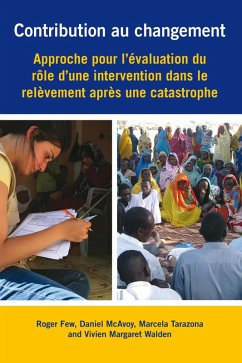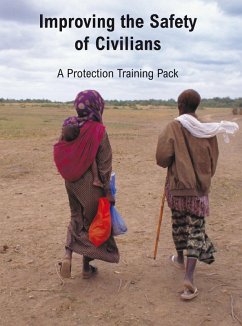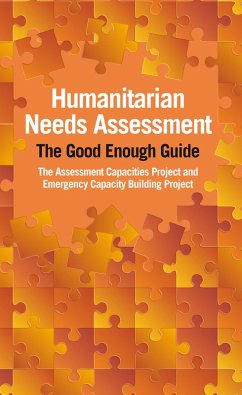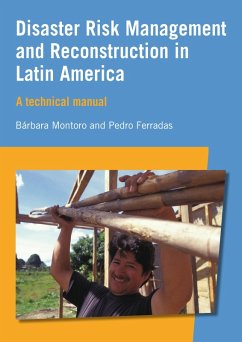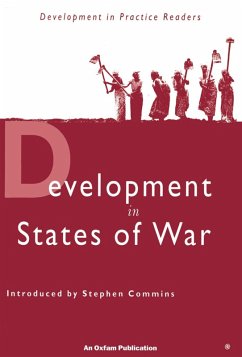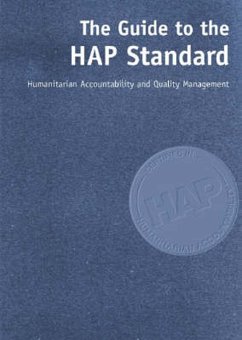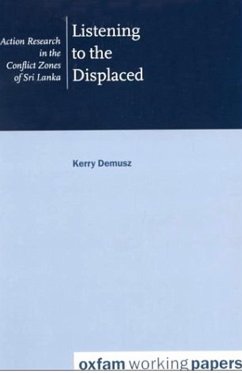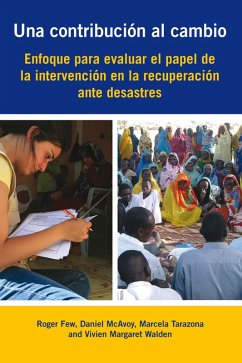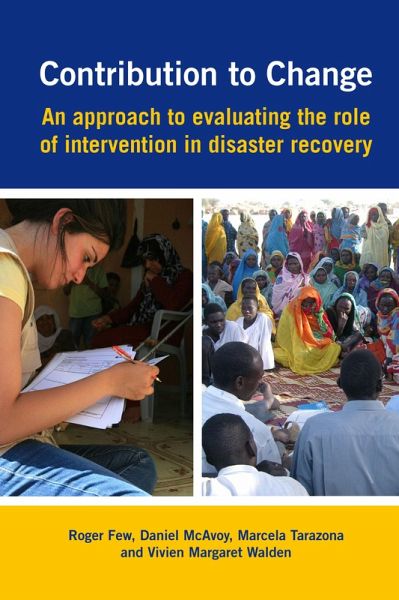
Contribution to Change (eBook, PDF)
Versandkostenfrei!
Sofort per Download lieferbar
77,95 €
inkl. MwSt.
Weitere Ausgaben:

PAYBACK Punkte
39 °P sammeln!
As the number of people affected by disasters has risen, so have the expectations placed on humanitarian agencies by donors, the public and the affected populations themselves. Agencies must now provide evidence of impact of their interventions. But applying conventional evaluation methods can pose problems. How can we assess the difference that intervention makes? Is it ethical to consign some disaster-affected communities to control groups? How feasible is it to collect baseline data among people who have just been traumatized? This guide provides a reliable and practical method for identify...
As the number of people affected by disasters has risen, so have the expectations placed on humanitarian agencies by donors, the public and the affected populations themselves. Agencies must now provide evidence of impact of their interventions. But applying conventional evaluation methods can pose problems. How can we assess the difference that intervention makes? Is it ethical to consign some disaster-affected communities to control groups? How feasible is it to collect baseline data among people who have just been traumatized? This guide provides a reliable and practical method for identifying the contribution an agency makes to changes to people's lives in the recovery period following disasters. It outlines 11 steps that take evaluators through designing quantitative and qualitative methods through to collecting field data and developing a narrative of evidence and change.
Dieser Download kann aus rechtlichen Gründen nur mit Rechnungsadresse in A, D ausgeliefert werden.




